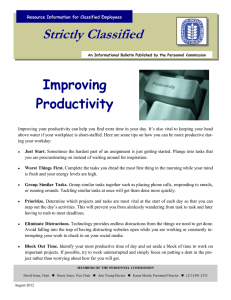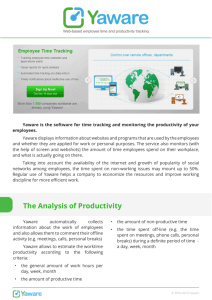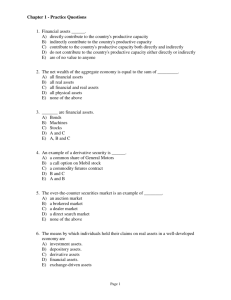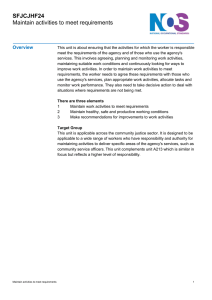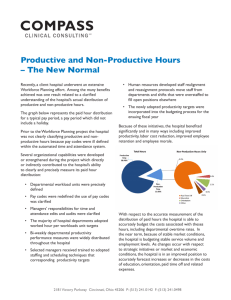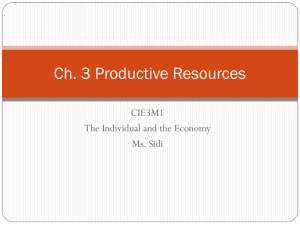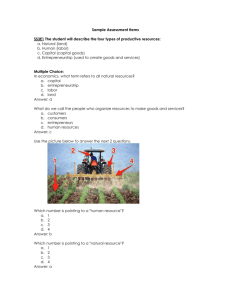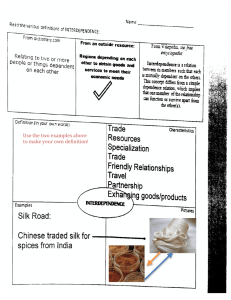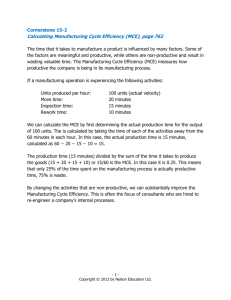How productive are maintenance workers and why
advertisement
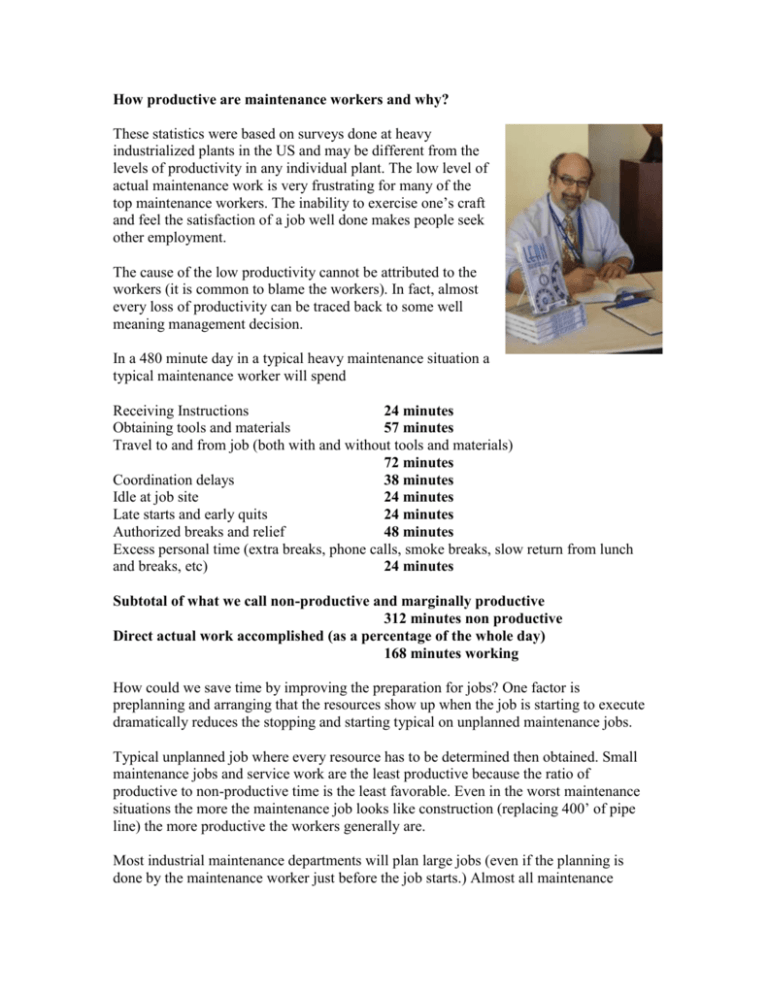
How productive are maintenance workers and why? These statistics were based on surveys done at heavy industrialized plants in the US and may be different from the levels of productivity in any individual plant. The low level of actual maintenance work is very frustrating for many of the top maintenance workers. The inability to exercise one’s craft and feel the satisfaction of a job well done makes people seek other employment. The cause of the low productivity cannot be attributed to the workers (it is common to blame the workers). In fact, almost every loss of productivity can be traced back to some well meaning management decision. In a 480 minute day in a typical heavy maintenance situation a typical maintenance worker will spend Receiving Instructions 24 minutes Obtaining tools and materials 57 minutes Travel to and from job (both with and without tools and materials) 72 minutes Coordination delays 38 minutes Idle at job site 24 minutes Late starts and early quits 24 minutes Authorized breaks and relief 48 minutes Excess personal time (extra breaks, phone calls, smoke breaks, slow return from lunch and breaks, etc) 24 minutes Subtotal of what we call non-productive and marginally productive 312 minutes non productive Direct actual work accomplished (as a percentage of the whole day) 168 minutes working How could we save time by improving the preparation for jobs? One factor is preplanning and arranging that the resources show up when the job is starting to execute dramatically reduces the stopping and starting typical on unplanned maintenance jobs. Typical unplanned job where every resource has to be determined then obtained. Small maintenance jobs and service work are the least productive because the ratio of productive to non-productive time is the least favorable. Even in the worst maintenance situations the more the maintenance job looks like construction (replacing 400’ of pipe line) the more productive the workers generally are. Most industrial maintenance departments will plan large jobs (even if the planning is done by the maintenance worker just before the job starts.) Almost all maintenance departments will plan shutdowns because of the large negative impact on revenue of having the plant out of service. In a Planned maintenance job the resources are obtained at the beginning and the job is executed without interruption (when everything goes well). Keep in mind that in all likelihood your best workers already work like this even if they are using a scrap of cardboard and a stubby pencil to plan their jobs! The planning effort is to make the average and lower workers work at this level. One informal rule of thumb is that each dollar invested in planning typically saves three to five dollars during work execution and the duration of a planned job is commonly only half as long as that of an unplanned job.
